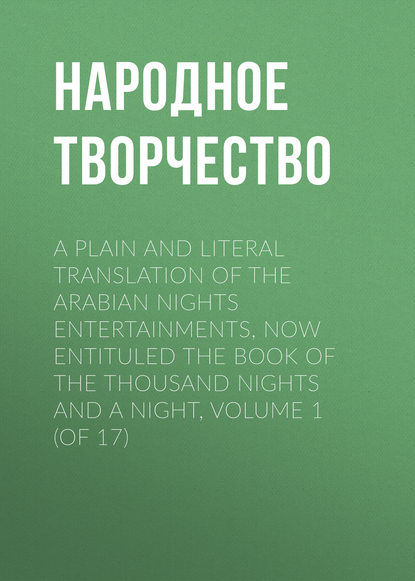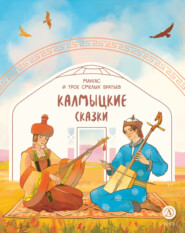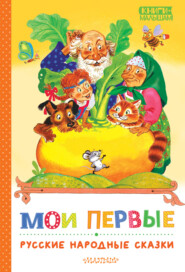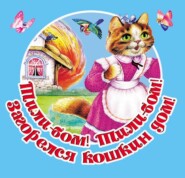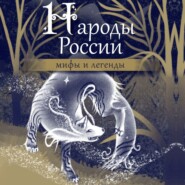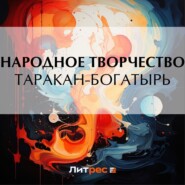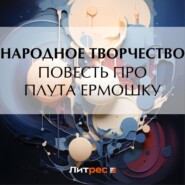По всем вопросам обращайтесь на: info@litportal.ru
(©) 2003-2024.
✖
A plain and literal translation of the Arabian nights entertainments, now entituled The Book of the Thousand Nights and a Night, Volume 1 (of 17)
Настройки чтения
Размер шрифта
Высота строк
Поля
362
He had trusted in Allah and his trust was justified.
363
Arab. "Khila'ah" prop. what a man strips from his person: gen. an honorary gift. It is something more than the "robe of honour" of our chivalrous romances, as it includes a horse, a sword (often gold-hilted), a black turban (amongst the Abbasides) embroidered with gold, a violet-coloured mantle, a waist-shawl and a gold neck-chain and shoe-buckles.
364
Arab. "Izá," i. e. the visits of condolence and so forth which are long and terribly wearisome in the Moslem East.
365
Arab. "Mahr," the money settled by the man before marriage on the woman and without which the contract is not valid. Usually half of it is paid down on the marriage-day and the other half when the husband dies or divorces his wife. But if she take a divorce she forfeits her right to it, and obscene fellows, especially Persians, often compel her to demand divorce by unnatural and preposterous use of her person.
366
Bismillah here means "Thou art welcome to it."
367
Arab. "Bassak," half Pers. (bas=enough) and – ak=thou; for thee. "Bas" sounds like our "buss" (to kiss) and there are sundry good old Anglo-Indian jokes of feminine mistakes on the subject.
368
This saving clause makes the threat worse. The scene between the two brothers is written with characteristic Arab humour; and it is true to nature. In England we have heard of a man who separated from his wife because he wished to dine at six and she preferred half-past six.
369
Arab. "Misr" (vulg. Masr). The word, which comes of a very ancient house, was applied to the present Capital about the time of its conquest by the Osmanli Turks A.H. 923=1517.
370
The Arab. "Jízah,"=skirt, edge; the modern village is the site of an ancient Egyptian city, as the "Ghizah inscription" proves (Brugsch, History of Egypt, ii. 415).
371
Arab. "Watan" literally meaning "birth-place" but also used for "patria, native country"; thus "Hubb al-Watan"=patriotism. The Turks pronounce it "Vatan," which the French have turned into Va-t'en!
372
Arab. "Zarzariyah"=the colour of a stare or starling (Zurzúr).
373
Now a Railway Station on the Alexandria-Cairo line.
374
Even as late as 1852, when I first saw Cairo, the city was girt by waste lands and the climate was excellent. Now cultivation comes up to the house walls; while the Mahmudiyah Canal, the planting the streets with avenues and over-watering have seriously injured it; those who want the air of former Cairo must go to Thebes. Gout, rheumatism and hydrophobia (before unknown) have become common of late years.
375
This is the popular pronunciation: Yákút calls it "Bilbís."
376
An outlying village on the "Long Desert," between Cairo and Palestine.
377
Arab. "Al-Kuds"=holiness. There are few cities which in our day have less claim to this title than Jerusalem; and, curious to say, the "Holy Land" shows Jews, Christians and Moslems all in their worst form. The only religion (if it can be called one) which produces men in Syria is the Druse. "Heiligen-landes Jüden" are proverbial and nothing can be meaner than the Christians while the Moslems are famed for treachery.
378
Arab. "Shamm al-hawá." In vulgar parlance to "smell the air" is to take a walk especially out of town. There is a peculiar Egyptian festival called "Shamm al-Nasím" (smelling the Zephyr) which begins on Easter-Monday (O.S.), thus corresponding with the Persian Nau-roz, vernal equinox and introducing the fifty days of "Khammasín" or "Mirisi" (hot desert winds). On awaking, the people smell and bathe their temples with vinegar in which an onion has been soaked and break their fast with a "fisikh" or dried "búri"=mullet from Lake Menzalah: the late Hekekiyan Bey had the fish-heads counted in one public garden and found 70,000. The rest of the day is spent out of doors "Gypsying," and families greatly enjoy themselves on these occasions. For a longer description see a paper by my excellent friend Yacoub Artin Pasha, in the Bulletin de l'Institut Égyptien, 2nd series, No. 4, Cairo, 1884. I have noticed the Mirisi (Southwester) and other winds in the Land of Midian, i., 23.
379
So in the days of the "Mameluke Beys" in Egypt a man of rank would not cross the street on foot.
380
Arab. Basrah. The city now in decay and not to flourish again till the advent of the Euphrates Valley R.R., is a modern place, founded in A.H. 15, by the Caliph Omar upon the Aylah, a feeder of the Tigris. Here, according to Al-Hariri, the "whales and the lizards meet;" and, as the tide affects the river,
Its stream shows prodigy, ebbing and flowing
In its far-famed market-place, Al-Marbad, poems used to be recited; and the city was famous for its mosques and Saint-shrines, fair women and school of Grammar which rivalled that of Kúfah. But already in Al-Hariri's day (nat. A.H. 446=A.D. 1030) Baghdad had drawn off much of its population.
381
This fumigation (Bukhúr) is still used. A little incense or perfumed wood is burnt upon an open censer (Mibkharah) of earthenware or metal, and passed round, each guest holding it for a few moments under his beard. In the Somali Country, the very home of incense, both sexes fumigate the whole person after carnal intercourse. Lane (Mod. Egypt, chapt. viii.) gives an illustration of the Mibkharah.
382
The reader of The Nights will remark that the merchant is often a merchant-prince, consorting and mating with the highest dignitaries. Even amongst the Romans, a race of soldiers, statesmen and lawyers, "mercatura" on a large scale was "not to be vituperated." In Boccaccio (x. 19) they are netti e delicati uomini. England is perhaps the only country which has made her fortune by trade, and much of it illicit trade, like that in slaves which built Liverpool and Bristol, and which yet disdains or affects to disdain the trader. But the unworthy prejudice is disappearing with the last generation, and men who formerly would have half starved as curates and ensigns, barristers and carabins are now only too glad to become merchants.
383
These lines in the Calc. and Bul. Edit. have already occurred (Night vii.) but such carelessness is characteristic despite the proverb, "In repetition is no fruition." I quote Torrens (p. 60) by way of variety. As regards the anemone (here called a tulip) being named "Shakík"=fissure, I would conjecture that it derives from the flower often forming long lines of red like stripes of blood in the landscape. Travellers in Syria always observe this.
384
Such an address to a royalty (Eastern) even in the present day, would be a passport to future favours.
385
In England the man marries and the woman is married: there is no such distinction in Arabia.
He had trusted in Allah and his trust was justified.
363
Arab. "Khila'ah" prop. what a man strips from his person: gen. an honorary gift. It is something more than the "robe of honour" of our chivalrous romances, as it includes a horse, a sword (often gold-hilted), a black turban (amongst the Abbasides) embroidered with gold, a violet-coloured mantle, a waist-shawl and a gold neck-chain and shoe-buckles.
364
Arab. "Izá," i. e. the visits of condolence and so forth which are long and terribly wearisome in the Moslem East.
365
Arab. "Mahr," the money settled by the man before marriage on the woman and without which the contract is not valid. Usually half of it is paid down on the marriage-day and the other half when the husband dies or divorces his wife. But if she take a divorce she forfeits her right to it, and obscene fellows, especially Persians, often compel her to demand divorce by unnatural and preposterous use of her person.
366
Bismillah here means "Thou art welcome to it."
367
Arab. "Bassak," half Pers. (bas=enough) and – ak=thou; for thee. "Bas" sounds like our "buss" (to kiss) and there are sundry good old Anglo-Indian jokes of feminine mistakes on the subject.
368
This saving clause makes the threat worse. The scene between the two brothers is written with characteristic Arab humour; and it is true to nature. In England we have heard of a man who separated from his wife because he wished to dine at six and she preferred half-past six.
369
Arab. "Misr" (vulg. Masr). The word, which comes of a very ancient house, was applied to the present Capital about the time of its conquest by the Osmanli Turks A.H. 923=1517.
370
The Arab. "Jízah,"=skirt, edge; the modern village is the site of an ancient Egyptian city, as the "Ghizah inscription" proves (Brugsch, History of Egypt, ii. 415).
371
Arab. "Watan" literally meaning "birth-place" but also used for "patria, native country"; thus "Hubb al-Watan"=patriotism. The Turks pronounce it "Vatan," which the French have turned into Va-t'en!
372
Arab. "Zarzariyah"=the colour of a stare or starling (Zurzúr).
373
Now a Railway Station on the Alexandria-Cairo line.
374
Even as late as 1852, when I first saw Cairo, the city was girt by waste lands and the climate was excellent. Now cultivation comes up to the house walls; while the Mahmudiyah Canal, the planting the streets with avenues and over-watering have seriously injured it; those who want the air of former Cairo must go to Thebes. Gout, rheumatism and hydrophobia (before unknown) have become common of late years.
375
This is the popular pronunciation: Yákút calls it "Bilbís."
376
An outlying village on the "Long Desert," between Cairo and Palestine.
377
Arab. "Al-Kuds"=holiness. There are few cities which in our day have less claim to this title than Jerusalem; and, curious to say, the "Holy Land" shows Jews, Christians and Moslems all in their worst form. The only religion (if it can be called one) which produces men in Syria is the Druse. "Heiligen-landes Jüden" are proverbial and nothing can be meaner than the Christians while the Moslems are famed for treachery.
378
Arab. "Shamm al-hawá." In vulgar parlance to "smell the air" is to take a walk especially out of town. There is a peculiar Egyptian festival called "Shamm al-Nasím" (smelling the Zephyr) which begins on Easter-Monday (O.S.), thus corresponding with the Persian Nau-roz, vernal equinox and introducing the fifty days of "Khammasín" or "Mirisi" (hot desert winds). On awaking, the people smell and bathe their temples with vinegar in which an onion has been soaked and break their fast with a "fisikh" or dried "búri"=mullet from Lake Menzalah: the late Hekekiyan Bey had the fish-heads counted in one public garden and found 70,000. The rest of the day is spent out of doors "Gypsying," and families greatly enjoy themselves on these occasions. For a longer description see a paper by my excellent friend Yacoub Artin Pasha, in the Bulletin de l'Institut Égyptien, 2nd series, No. 4, Cairo, 1884. I have noticed the Mirisi (Southwester) and other winds in the Land of Midian, i., 23.
379
So in the days of the "Mameluke Beys" in Egypt a man of rank would not cross the street on foot.
380
Arab. Basrah. The city now in decay and not to flourish again till the advent of the Euphrates Valley R.R., is a modern place, founded in A.H. 15, by the Caliph Omar upon the Aylah, a feeder of the Tigris. Here, according to Al-Hariri, the "whales and the lizards meet;" and, as the tide affects the river,
Its stream shows prodigy, ebbing and flowing
In its far-famed market-place, Al-Marbad, poems used to be recited; and the city was famous for its mosques and Saint-shrines, fair women and school of Grammar which rivalled that of Kúfah. But already in Al-Hariri's day (nat. A.H. 446=A.D. 1030) Baghdad had drawn off much of its population.
381
This fumigation (Bukhúr) is still used. A little incense or perfumed wood is burnt upon an open censer (Mibkharah) of earthenware or metal, and passed round, each guest holding it for a few moments under his beard. In the Somali Country, the very home of incense, both sexes fumigate the whole person after carnal intercourse. Lane (Mod. Egypt, chapt. viii.) gives an illustration of the Mibkharah.
382
The reader of The Nights will remark that the merchant is often a merchant-prince, consorting and mating with the highest dignitaries. Even amongst the Romans, a race of soldiers, statesmen and lawyers, "mercatura" on a large scale was "not to be vituperated." In Boccaccio (x. 19) they are netti e delicati uomini. England is perhaps the only country which has made her fortune by trade, and much of it illicit trade, like that in slaves which built Liverpool and Bristol, and which yet disdains or affects to disdain the trader. But the unworthy prejudice is disappearing with the last generation, and men who formerly would have half starved as curates and ensigns, barristers and carabins are now only too glad to become merchants.
383
These lines in the Calc. and Bul. Edit. have already occurred (Night vii.) but such carelessness is characteristic despite the proverb, "In repetition is no fruition." I quote Torrens (p. 60) by way of variety. As regards the anemone (here called a tulip) being named "Shakík"=fissure, I would conjecture that it derives from the flower often forming long lines of red like stripes of blood in the landscape. Travellers in Syria always observe this.
384
Such an address to a royalty (Eastern) even in the present day, would be a passport to future favours.
385
In England the man marries and the woman is married: there is no such distinction in Arabia.





